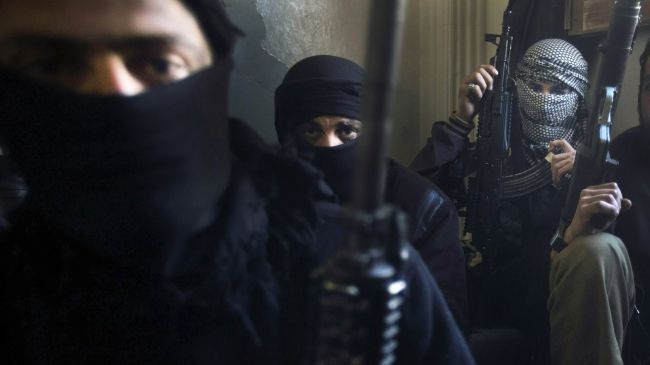
"Historical research indicates that fragmentation is one of the main causes for terrorist campaigns to halt", said Wietse van den Berge, a Research Fellow at ICCT, in an interview with Habilian Association.
Wietse van den Berge studied political science at Leiden University, specialising in international relations and political philosophy. After graduating in 2002, he joined the Royal Netherlands Air Force and attended the Royal Netherlands Military Academy. A 12-month internship at the academy’s military science faculty followed completion of his officer training, researching military history and military operations. Wietse held several ranks within the Air Force and in 2011-2012 he served as a military observer for the United Nations in the Middle East. He was triggered by personally witnessing the Arab uprisings in that region to return to his academic career. Since joining Leiden University’s the Institute of Security and Global Affairs (ISGA) in 2013, his focus centers on political violence in contemporary Middle Eastern conflicts. Within ICCT, Wietse is involved in a project concerning foreign terrorist fighters. Following is full text of Habilian Association’s interview with the Dutch researcher:

Habilian: What is the main cause of radicalization, ideology or religion?
VDB: Among scholars there is much discussion on this question. Actually, no one really knows because it is very different for each individual. Personally, I believe neither ideology or religion is actually a cause for radicalization. Both - in my opinion - are tools that can be used by radical individuals or groups to gain support. I think that people who tend to be attracted by these ideologies or religions, already have some kind of frustration or trauma that drives them towards such phenomena anyway.
Habilian: What about Jihadi Salafism?
VDB: Jihadi Salafism is a case in point. Within Europe, relatively many converts (both from Muslim and non-Muslim background) have troubled backgrounds. Research pointed out that relatively many come from broken families, have had problems with authorities or mental problems. It seems that these people are more vulnerable for radicalization. Moreover, it seems that groups like Daesh specifically aim at these individuals to attract them.
Habilian: What is the best policy solution to undermine this ideology?
VDB: Easier said than done is to provide the vulnerable groups with feasible alternatives. They need to be made aware that radicalization is not a solution but a problem in itself. This calls for a pro-active approach on all governance levels, but especially for municipalities. Ideally, civil society is included, both politically and religiously oriented.
Habilian: Which factor play a greater role in turning ordinary western people into radicalization, political and economic demands or cultural and identity matters? (What are the bugs of adopting the first interpretation?)
VDB: Again, for each individual it is different. Overall, it seems to be a combination of all factors mentioned. Economic depression has led to unemployment, which affected culture and identity. Still, there are cases of radicalization that disprove this: some people had a solid economic base, were well educated and would not be expected to radicalize. For some reason, these people did feel sympathy for jihad and decided to join it. Peer pressure by family or friends might be an important factor here.
See: https://www.icct.nl/wp-content/uploads/2016/03/ICCT-Report_Foreign-Fighters-Phenomenon-in-the-EU_1-April-2016_including-AnnexesLinks.pdf or http://belfercenter.ksg.harvard.edu/files/The_Rise_of_Muslim_Foreign_Fighters.pdf
Habilian: What Motivates Dutch youth to travel to Syria and take part in the so called Jihad?
VDB: Basically, Dutch youth travelled due to the same motivations. One hypothesis is that many from Moroccan descent are second or third generation and are in an identity crisis, making them vulnerable (see question 1). However, almost 1 in 4 is convert from a non-Muslim background. As mentioned, troubled pasts may play a role.
See: http://www.terrorismanalysts.com/pt/index.php/pot/article/view/365/718
Habilian: Some experts on Jihadi groups believe that what’s sometimes referred to as the global jihadist “movement” is actually extremely fractured; Because, despite being united by a general set of shared ideological beliefs, that so called movement divided organizationally and sometimes doctrinally. What do you think of that?
VDB: I agree that it is fragmented. The arguments between Daesh and Al-Qaeda illustrate this. Their overall goal is the same - (re-) create the Caliphate -, they are divided on how to achieve that. The peculiar thing is that it seems inherent to radical elements: the Irish Republican Army was split several times, the Baader-Meinhof Group in Germany was fragmented internally, and so on. Actually, historical research indicates that fragmentation is one of the main causes for terrorist campaigns to halt.
See: http://www.rand.org/content/dam/rand/pubs/monographs/2008/RAND_MG741-1.pdf and http://press.princeton.edu/titles/9012.html
Habilian: Abu Muhammad al-Golani, leader of the Nusra Front, appeared on video July 28 to announce his group’s formal separation from al-Qaeda and its rebranding as the “Levantine Conquest Front.” Do you believe that separation has really occurred? What is the reason behind Al-Nusra’s move?
VDB: As many experts have already commented, it remains questionable to what extent Jabhat Al-Nusra (now: Jabhat Al-Fath Al-Sham) really left Al-Qaeda Central. It looks like in their narrative they are separate, while in reality they still have the same goals and methods. The reason behind Al-Nusra’s move is probably a way to become more acceptable as an alternative partner for international actors. By separating itself from Al-Qaeda it is no longer officially affiliated to a terrorist organization, and might be regarded a negotiating partner.
Habilian: will al-Nusra’s mentioned narrative separation weaken Al-Qaeda? How the separation will affect the organization’s competition with the IS?
VDB: Although Al-Nusra is a strong organization that has left the Al-Qaeda-group, in practice they might still be expected to cooperate. Al-Nusra will no longer be an element within, but rather a strong partner of Al-Qaeda Central. This implies that Al-Nusra can act more independently of Al-Qaeda, which – in theory – weakens the position of Al-Qaeda.
As IS will further weaken due to the international coalitions, Al-Nusra might fill the gap that IS leaves behind when it finally disintegrates. Al-Nusra probably tries to avoid a similar faith by trying to become acceptable for the coalitions.
Habilian: What are the potential outcomes of the internal-jihadist competition between ISIS and Al-Qaida for the Middle East?
VDB: While there is fierce rivalry among the jihadists, in the end they share a common goal. I expect that the leaders will not accept one another because of fear of reputation. Lower levels, however, already during the conflict showed to be more pragmatic and occasionally - sometimes by the brigade – switched sides. Especially if the jihadists are cornered by the international coalitions fighting against them, I think they will realize that they need to cooperate in order to survive. In line with the previous answer, I think that the Middle East will need to prepare for jihadism for many more years.
Habilian: What are geopolitical outcomes of the ISIS's entry to the phase decline or possible collapse?
VDB: I expect the outcomes to be mainly regional, although some people might be sympathizing with Daesh and conduct lone actor attacks. Regionally, some scenario’s can occur:
- Daesh-fighters might go underground and continue as a terrorist organization among the Iraqi and Syrian people. This is what happened with Daesh’ predecessors al-Qaeda in Iraq and Islamic State in Iraq;
- They might also join another jihadist group, like Jabhat al-Fateh al-Sham (formerly Jabhat al-Nusra; actually, the split between al-Qaeda and Jabhat al-Nusra might pave the way to such a scenario).
In both scenario’s it means the jihadist ideology will remain and might be a potentially dangerous threat for the future.
Habilian: What are the major factors influence Jihadism?
VDB: L Belive thar there are three factors:
-The level of emancipation that is experienced by Sunni’s in general and Salafi’s in particular; if they feel repressed, they will become active – following from Relative Deprivation Theory;
- The areas available; Jihadi-Salafi group need failed states or regions without government control to be able to exist;
- The level of international cooperation against the phenomenon; if left alone in peripheral areas, these groups might be able to rise again.
Habilian: When looking at the developments in 1999, we see that Saudi Arabia was ‘the near enemy’ that the jihadi militants were focused on it. However, it is evident now that jihadists, especially the ISIS, has chosen Shiite as their near enemy. Why and how this strategy shift took place?
VDB: True. Jihadi militants focused on regimes that - in their view – proposed a wrong interpretation of Islam. Saudi-Arabia was, according to jihadists, wrong in inviting and letting stay American troops after the 1991 war against Iraq. During the 90’s the leader of what eventually became Daesh, Abu Musab al-Zarqawi, developed an extremely radical jihadist view that regarded Shia-Muslims as heretics and as legitimate targets for jihadist attacks. He even went as far to regard Shia-Muslims as more dangerous - due to proximity - than secular entities.
This narrative gained traction after the 2003 invasion of Iraq by the United States. Sunni people felt they lost their political power to Shia-Muslims and Kurds, both supported by the United States, in the perception of jihadists in collaboration with Iran. The jihadists used that exact frustration among Sunni people to receive support for their ideas (as described in answer 1). The sectarian card was played out by the jihadists in reaction to the frustration over the loss of political power and strengthened by the fact that Sunni people were not organized politically. Although most Sunni people do not agree with Daesh, they have no alternative but to cooperate.
See: https://www.brookings.edu/wp-content/uploads/2014/12/en_web_lister.pdf
Habilian: Is it possible that jihadists once again come to the Saudis?
VDB: Actually, Saudi-Arabia did have some attacks by jihadists already. Jihadists see especially the royals as allies of the secular Americans, who should therefore be opposed. The discussion in the United States on prosecuting Saudi nationals for participating in the 9/11 plots can further increase the opposition of jihadists against Saudi-Arabia.
Habilian: How do you predict the future geopolitics of the Global Jihad? What are the major factors affecting this phenomenon?
VDB: Based upon recent history, we can conclude that Jihadi-Salafist ideas will continue to survive someway, as there will always remain some Salafi’s who feel repressed by other communities (for example Shia, ‘the West’, or secular). History also teaches us that these extremist Salafi’s tend to go to areas where they can live without much government control. As the international coalitions push Jihadi-Salafists from Iraq and Syria, they tend to go elsewhere. Initially, Libya and Nigeria (Boko Haram), later on perhaps South-East Asia. [In that perspective, the narrative you mentioned in your first question might be a preparation for such a move towards this region.]
